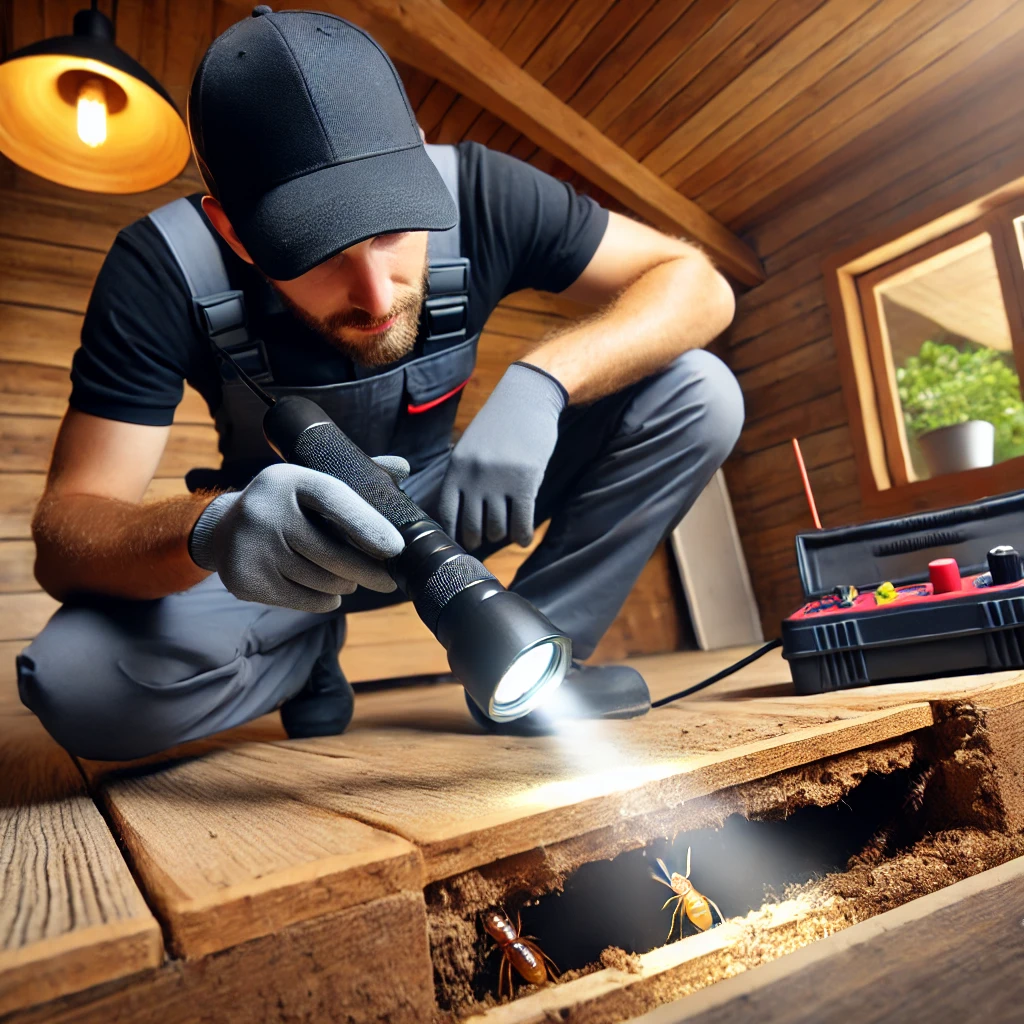
Termites are a hidden threat that can silently destroy homes and businesses. Many property owners in Jimboomba underestimate the importance of regular termite inspections, leaving their investments vulnerable to costly damage.
A routine termite inspection is one of the most effective ways to detect and prevent infestations before they cause significant harm. But how often should you schedule an inspection? Understanding termite risks and adopting a proactive approach can save homeowners thousands in repairs. Reliance Pest Control Jimboomba specializes in termite detection and prevention, helping property owners keep their homes safe from these destructive pests.
A termite inspection is a thorough assessment of your property to identify signs of termite activity, damage, and potential entry points. Since termites work silently and can remain undetected for years, regular inspections are crucial for early detection.
Without frequent inspections, termites can compromise the structural integrity of your home, leading to expensive repairs. A professional inspection ensures that any termite activity is addressed before it becomes a major problem.
For homeowners in Jimboomba, termite inspections should be conducted:
Annually: A yearly termite inspection is the industry standard for protecting homes from infestations.
Every 6 Months: If your property is at high risk due to factors like previous infestations, nearby bushland, or wooden structures, a bi-annual inspection is recommended.
Before Buying a Home: If you’re purchasing a property, a pre-purchase termite inspection can prevent unexpected repair costs.
Reliance Pest Control Jimboomba provides thorough termite inspections to ensure your property remains protected.
Even between professional inspections, homeowners should be aware of these termite warning signs:
Mud Tubes: Small tunnels made of mud on walls, foundations, or wooden structures.
Hollow-Sounding Wood: Knock on wooden surfaces – if they sound hollow, termites may be eating them from the inside.
Discarded Wings: Piles of tiny, translucent wings near windows or doors indicate swarming termites.
Frass (Termite Droppings): Resembling sawdust, frass is a sign of drywood termites inside your home.
If you notice any of these signs, immediate action is necessary to prevent further damage.
Certain properties are more vulnerable to termite infestations, including:
Older Homes: These structures may not have modern termite protection measures in place.
Properties Near Bushland: Homes surrounded by trees or bushland have a higher risk of termite activity.
Homes with High Moisture Levels: Leaking pipes, poor drainage, and humid conditions attract termites.
Houses with Wooden Features: Properties with timber decks, fences, and subfloors are prime targets for termites.
If your home falls into any of these categories, regular termite inspections are essential.
While termites do not directly harm humans, their presence can lead to serious health concerns. Termite infestations increase moisture levels in homes, promoting the growth of mould and mildew, which can trigger allergies, asthma, and respiratory issues. Additionally, termites produce wood dust as they chew through structures, which can become airborne and cause eye, skin, and lung irritation.
Protecting your home with regular termite inspections in Jimboomba helps prevent infestations, ensuring a safer and healthier living environment for your family.
To minimize the risk of a termite infestation, follow these preventative measures:
Schedule Regular Inspections: Annual or bi-annual termite inspections are the best defense against infestations.
Install a Termite Barrier: Chemical or physical barriers help prevent termites from entering your property.
Reduce Moisture Around Your Home: Fix leaks, ensure proper drainage, and avoid excessive watering near foundations.
Store Firewood Away from the House: Keep wooden materials at least 20 feet away from your home to prevent attracting termites.
Reliance Pest Control Jimboomba provides customized termite protection plans to safeguard your property.
Now that you understand how often termite inspections should be conducted, the next step is learning how to identify termite activity before serious damage occurs. In our upcoming article, we’ll cover:
Stay tuned for expert insights on keeping your home termite-free for years to come.
If you haven’t scheduled a termite inspection recently, don’t take the risk. Book a professional termite inspection with Reliance Pest Control Jimboomba today to ensure your home stays protected.
📍 Stay updated on termite prevention tips! Follow us on Reliance Pest Control Jimboomba’s Facebook Page for expert advice and special offers.
